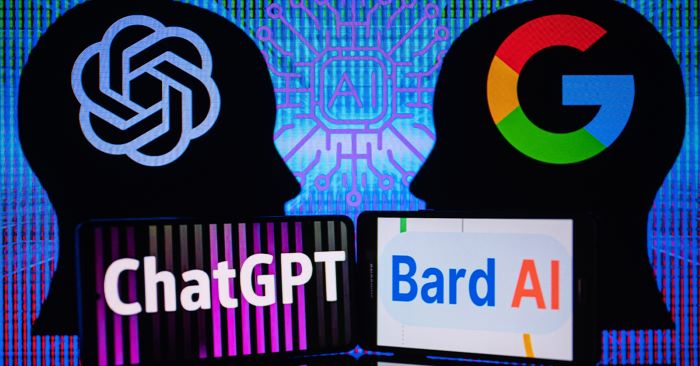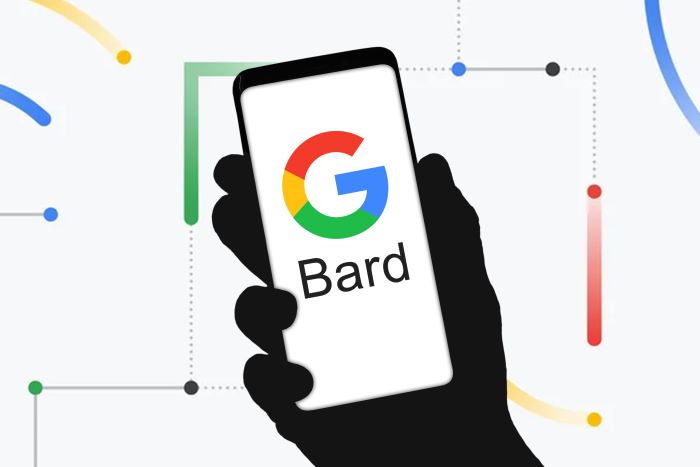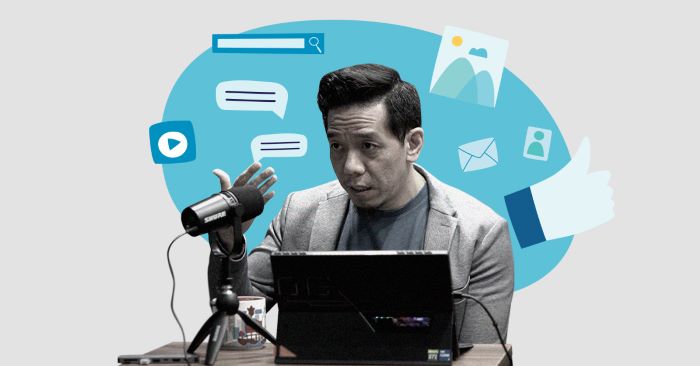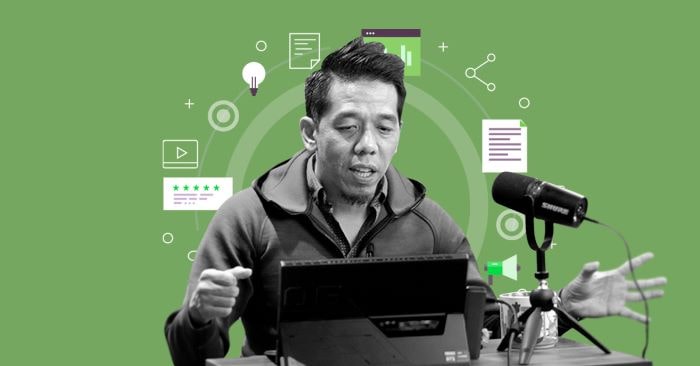Truelogic Episode 49 Recap: The Artificial Intelligence War: Bard vs ChatGPT

Alphabet, the parent company of Google, and Microsoft are in a race to become the dominant player in the AI chatbot market with the recent launch of Google’s “Bard” and Microsoft’s announcement of a forthcoming AI product which is the inclusion of ChatGPT 4 on Bing and Microsoft Office.
Both companies aim to use AI technology to improve their respective search services, Bing and Google Search, which are significant sources of revenue for each company. While both Bard and OpenAI’s ChatGPT offer similar services, enabling users to receive human-like responses by inputting questions, requests, or prompts, let’s see what are the critical differences between the two.
Podcast Transcription:
Bernard San Juan: Warning this is an opinion piece podcast. Hi, guys. Welcome to another episode of the Truelogic DX Podcast and I’m going to talk about apprentice Bard. Or Bard. To be precise, Google Bard. So it’s all in the news today. And, you know, I had been playing for ChatGPT for weeks before I decided to put up a podcast episode for it because I don’t like writing on bandwagons. But I thought I would give people, I guess, the same insights that I have into Google’s AI efforts. So for those of you that know, I tend to be an alpha nerd, I keep really in touch with anything that’s happening in technology, the web, and AI.
And recently, Alphabet, Google’s parent company, or actually Google, released a press release talking about Bard, which is what most people seem to think is Google’s answer to OpenAI’s ChatGPT. Now, both companies seem to be using AI technology to improve their respective search services. Of course, Satya Nadella in several interviews had already said how he wanted ChatGPT integrated into Bing, and instead of being pre-trained on data from 2001, would be trained on data that is captured by Bing’s search index. So both Bard and OpenAI’s ChatGPT, they’re going to be very similar services and whatnot. But I did sort of, I guess, want to let people know where I come from like there were a lot of people that said, “Oh, ChatGPT is going to disrupt Google. Oh, is this going to automate a lot of jobs out of existence,” and whatnot. So I thought it would be a great episode to talk about AI, specifically the progress of Bard.
Today, we’re going to talk about Google’s Bard. Okay, so in the middle of the debate in terms of the increased usage and AI, Google announced their own language-based conversational AI. And a lot of the content that you see on media is that Google is racing to catch up to ChatGPT. So much so that there’s an announcement that it would begin publicly testing its new chatbot, Bard with a small private group, before releasing it to the public in the coming weeks. Google’s chatbot AI is expected to be cutting edge and it aims to revolutionize the information gathering process of how we use search engines. But how does it fair versus ChatGPT and what is to expect?
What is ChatGPT?
First thing, I want to dispel all of these articles. AI is not new to Google, guys. AI is not new to Google. In fact, I wanted to break down an item here. ChatGPT is called GPT because GPT stands for Generative Pre-trained Transformer. Now, if you guys Google the term Google Transformer, the GPT model was first used in 2018. But if you guys Google the term Google Transformer, one of the things that you’ll discover is that the transformer model for natural language training was actually research that was created and released by Google scientists. So again, I’ll repeat that the transformer model for natural language training is not an OpenAI model. It was a model that was developed by Google researchers. So transformer technology in machine learning is not new like Google. I will always debunk the idea that Google is behind in the AI game.
Remember that Ray Kurzweil works with Google, right? And this is the primary proponent of AI when it comes to natural language in our time. So I’m not convinced that Google is behind in the AI race. In fact, if you go on a time machine with me and explore how Google had been developing natural language, you’ll realize that there are reasons why ChatGPT was made available to the public before Google’s LaMDA or Google’s Apprentice Bard, or as we popularly know it, the Google Bard is made available to the public.
History of ChatGPT
Google research is the transformer model when it comes to natural language training in 2017. OpenAI adopts this as a framework and they use it to build GPT-1 in, I would say, 2018. A year later, it was 2018. GPT-2 was released in 2019, and in 2020, OpenAI released GPT-3. ChatGPT, by the way, if you’re not aware, is sort of like GPT3.5. In 2021, OpenAI sort of took a break…actually, they didn’t take a break, but a lot of noise was actually captured by an image-generating AI called DALL-E. And now there is DALL-E-2. If you guys haven’t played with it, it’s terrific. It does great logos, it does photorealistic images, it can do oil paintings, watercolor, whatever. It’s terrific. If you haven’t played around with it, play with it. If you have a graphics requirement or image requirement, try to use DALL-E-2. It’s great. It’s an OpenAI tool.
So because of all of the noise that happened about ChatGPT, we all sort of know how great it is, how openly accessible it is. But why did Google fall behind? And this is the story that I wanted to deal with today.

What is Google’s AI LaMDA?
In 2017, Google built a transformer model for training natural language AI. Google’s engine for natural language AI is called LaMDA. So Google builds LaMDA. Structurally, it is pretty similar to GPT. And LaMDA, I’m not sure if you guys remember, but there was this news a year back about how a Google engineer had claimed that Google’s AI chatbot was sentient, right? That was LaMDA, guys. So Google in AI is not new, and that news happened before GPT-3 was publicly released. So again, I will always argue for the idea that Google is behind in the AI race here or in the natural language AI race here.
Now, for most people that don’t keep themselves abreast of tech news, I actually hadn’t heard that Google had called it Bard because I still knew it as Apprentice Bard. Because Google opened it up to captive data testing in 2022, in about October 2022, which was a couple of months earlier than when ChatGPT was released. And Bard is powered by a lightweight model of LaMDA. And what it does is and I guess you could say that the transformer model in itself is a more efficient way to train natural language AI on petabytes of data. It uses up less energy, uses up fewer resources, and it trains just as well. Both GPT and LaMDA are reinforcement AI. Meaning if you give it feedback if you give it human feedback on whether it is doing things correctly or not, it responds by learning. If you give it positive reinforcement, then it knows it did something well. If you give it negative reinforcement, then it knows it did something wrong and it learns from that.
Google had been working on its natural language AI behind the scenes, and I’ll try to help you guys recall how involved Google is when it comes to natural language AI. Do you guys remember that demo that Sundar Pichai did about a person placing a salon appointment? This was a bit all over the nerd news like it was all over the nerd internet. But in Google’s/IO, Sundar Pichai did a demo of a natural language AI voice that took an appointment from a lady that was doing a test call. And the voice assistant was even doing active listening verbal cues like it was going like, “Mm-hmm, mm-hmm, I got it. Right.” That’s natural language AI. That was Google’s natural language AI. And all of that is powered by LaMDA.
So in 2021, that was already happening in Google’s AI test kitchen. Google had already started beta-testing Apprentice Bard. It’s called Apprentice Bard because it was training like you train natural language AI. But when ChatGPT was released to the public, Google then decided, “You know what, let’s also try to get the public to participate in releasing our own version of the AI.”
Why after ChatGPT?
This is where I’ll argue it, and I’ll come from the business standpoint. If you want to put a little nuance into the conversation if you want to put a little context into the conversation, who and what is OpenAI like as the size of a business? In reality, OpenAI is a startup. They don’t have thousands of employees, and they don’t affect millions of businesses, so they could run ChatGPT and make a couple of mistakes. In short, in Mark Zuckerberg’s words, they could move fast and break stuff. They could move fast and break stuff.
Google is a trillion-dollar business with tens of thousands of employees supporting millions of businesses globally. They cannot move fast and break stuff because if Google breaks stuff, it will break our businesses, right? So I think one thing to consider about how Google moves in AI is they have to be significantly more conservative about how aggressively they can move into this space because they understand the immense influence and the immense power that their brand has or that their product has over the performance of a lot of businesses, a lot of brands, smaller enterprise globally. Now, given that there’s a lot of public excitement about OpenAI’s ChatGPT, I think Google’s hands did get forced a little to be able to release their own version of a natural language chatbot. So there are differences between the two.
But I think one more way to better illustrate the point of why Google did not aggressively release Bard to the public is what are the downsides to ChatGPT? What are the downsides to ChatGPT? And you’re not really going to see headlines talking about the downside to chat GPT. I’ll give you guys an example, like just a couple of the downsides to ChatGPT.
Pitfalls of ChatGPT
One of the downsides is it makes up stuff. ChatGPT can make stuff up. I have been using it for over a month and it can make stuff up. I always have to double-check its facts, I have to double-check the accuracy of the information it’s giving me. I mean, it writes it so confidently, you just want to believe it. But it makes shit up. That’s problematic because when you’re Google, what you want to do is satisfy search motivations and you want to bring people to the information that they need. Search is about organizing the information on the web so that accurate information is at our fingertips.
Imagine if you got misled by a Google search. Imagine if you got misled by an AI chatbot, under ChatGPT. In ChatGPT, because they’re a small business, they’re not a big deal, they’re not a trillion-dollar business. ChatGPT fibs a bit. It’s an oopsie. It’s an oopsie moment like that’s what it is. One of the other things you can do is if you ask it repetitively enough through the same thread, I think some of the samples that people said it could do was they got ChatGPT to help them get instructions for creating a bomb, or a homemade bomb. Can you imagine what would have happened if Bard did that? And this is really media bias sort of at its worst.
If Google’s Bard gave us bad info, the headline would not be Google Bard is revolutionary. And then one of the paragraphs in that article is one of its weaknesses. It can still provide misleading information. No, the headline would say, “Google AI has bad info. Google AI gives wrong information.” That’s the headline because it’s Google, right? The other is the headline to like the bomb instructions, for example. If Bard did that, the headline would read, “Google AI teaches men to make bombs.” That would be the headline. And you can see just by anticipating how differently the media, the public, and the audience would treat information that came out of Google, I can absolutely understand why they are more conservative at releasing something this powerful at the fingertips of the public.
What to expect when Google’s Bard AI comes out?
I think Bard has yet to make an appearance publicly. It has been data testing, if I’m not mistaken, in the UK since 2022. But one of ChatGPT’s biggest weaknesses is that it is pre-trained… yes, on petabytes of data, but only until 2021. Remember that it is a generative pre-trained transformer. So one of the things to look at when Bard comes out is, whether will it be pre-trained only up to a certain date or does it update itself on search information as frequently as Google updates its index. That’s one thing I am personally super curious about.
Apprentice Bard is expected to be able to answer real-time questions the same way we have time-bound questions on Google search. I think the other thing to look for is what minor adjustments to Google settings we need to make. I anticipate it will not take over the search bar like the main Google homepage. I anticipate that in the same way you do images, maps, whatever, chat would be one of those options. So part of the reason I think this is the way to do it is I also saw the data, the Bing data for ChatGPT, and it’s like that. It is a tab that you can select on search. So the primary window is still searched, the primary screen is still searched, and you can select chat as an option for getting answers to your questions.
The other thing to expect is, let’s not to forget that ChatGPT is. God, I love those guys at OpenAI. I mean, I do. I love Sam Altman and all of those guys that work on ChatGPT. I love the work that gets put out by OpenAI. I did use DALL-E or sorry, I do use DALL-E, but I think some of the biggest differences between the two of them is that the engine that runs ChatGPT is clearly GPT 3.5. The language model that runs Bard is Google’s LaMDA.
I think there was even news. I think Google called in Larry Page and Sergey Brin to the front lines to help them in the AI race. I even saw an article that because Larry Page and Sergey Brin are not active on Google, they do not readily have access to codes on Google. And I think I saw an article where Sergey Brin asked for access to the LaMDA codes to take a look at what can be done in order to release it to the public.
What I anticipate is that GPT3.5 for now will remain, unless OpenAI can burn through Microsoft’s 10 billion-like clickety split. For now, GPT3.5 will be trained up to date in 2021. They can update it to a more recent date, but it will still have a finite end date of what it knows. My expectation is that Google Bard will have access to more recent data. There may be a cut-off, there may be a cut-off, but my anticipation is that it will base its sources on Google’s index. Therefore, the source of the information is the Internet.
I think the refresh rate of the information that Bard will have access to will be nearly, or at least more frequent than GPT it will probably not be as frequent as Google’s refreshing of the index, but that means that the cut-off of the information is perhaps negligible. In spite of the fact that GPT-3 is powered by Microsoft cloud servers. I’m not sure if you are one of the 10 million people that use it. I know I was one of the first 5 million people that used GPT. Oh, sorry. That one of the first million that used it. And remember, it collected us in like five days. Right now there are over 10 million users. Thank you very much, people, that use it for trivial reasons. You give people like me a hard time using chat GPT, thank you very much.
But I think if Google poured in a decent amount of resources, we should see significantly more uptime on Bard than we see with GPT. For me, GPT is down half of the time. No kidding. That’s why I usually get a feel for whether there are more people using GPT or especially during US hours. My God. You cannot access ChatGPT. So I’m anticipating that Google will probably put in more cloud computing resources behind Bard than there currently are behind ChatGPT.
And then, of course, I think because they’re trained on information on the Internet, the limit with both of these is that they will tend to show the same tendencies that we’ve put that we humans have applied to the content of the internet. I don’t think ChatGPT or Bard are inherently capable of being racist, but if they produce anything with a racist output, it is probably because they encountered some racist content that we humans have put out on the World Wide Web. So I hope that clears it out.

Key Takeaway: ChatGPT vs Bard
In summary, the messages that I wanted to let everybody know about were, A – Bard is coming, B – it’s exciting. C- opinion piece. No, I don’t think Google is behind in the AI race. I would bet my money on Ray Kurzweil when it comes to natural language AI, I would bet on him any day. I don’t think Google is behind in the AI race. I think they have been deliberately conservative about making it available and released to the public. We’ve seen some really great demos of Google’s AI capabilities in Google/IO. And I think there are exciting days ahead for us now.
Is there going to be an impact on SEOs and digital marketers when chatbot inevitably becomes a mainstream practice? The answer is yes, but that’s not going to be this episode. So thank you very much for joining me for this episode of the Truelogic DX Podcast. Join me next time when we talk about the impact of chatbot AI on SEO.
As always, I appreciate your time. I want to say thanks to our friends at the Podmachine for powering our podcast. Subscribe to our Spotify, Google, and Apple accounts so that you can get alerts whenever we publish a new one. We look at your messages all the time and check us out for new episodes. Normally, we drop them off on Thursdays and I will see you guys on the next episode. Cheers.










